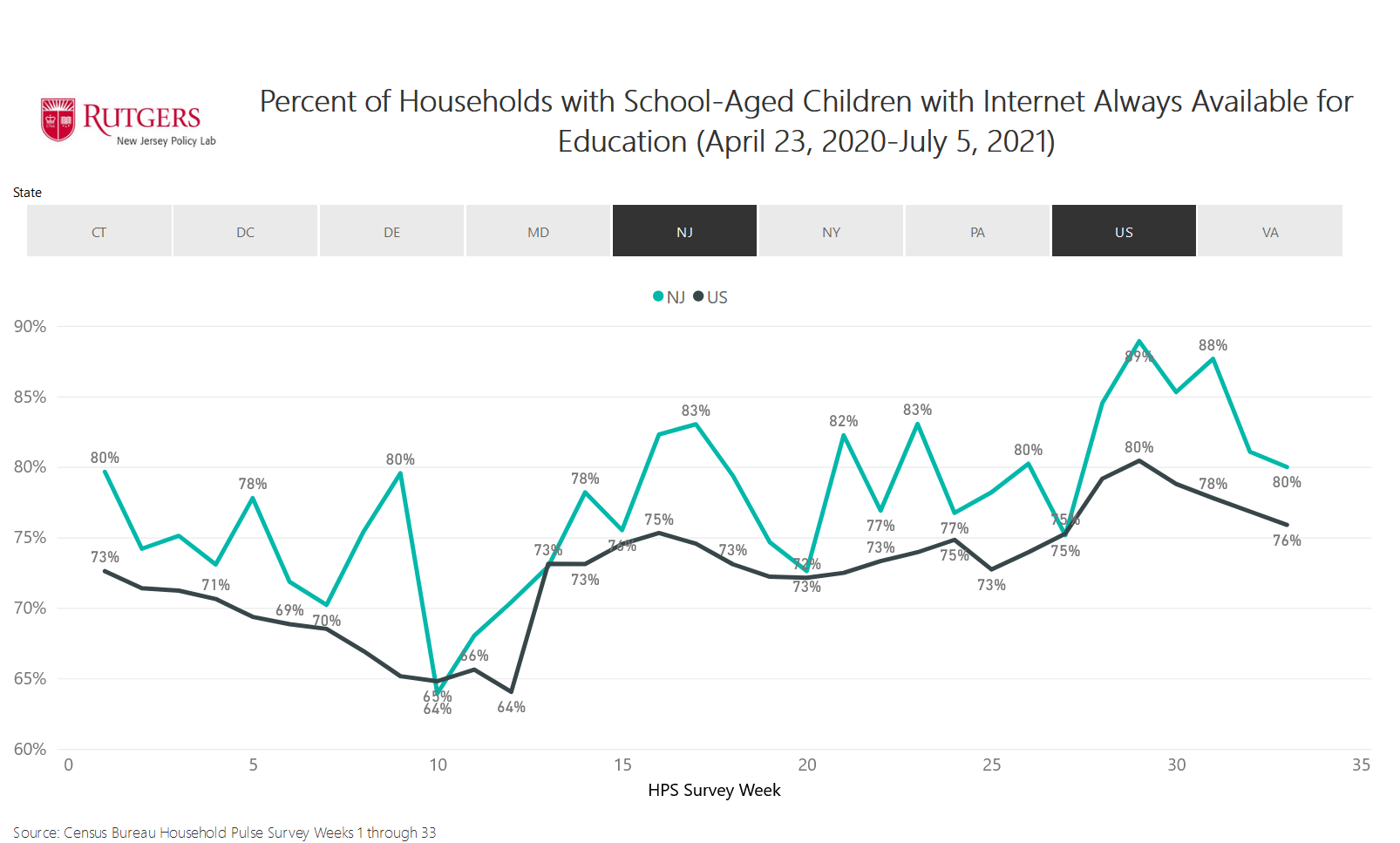By Stephanie Holcomb, Jessica Cruz-Nagoski, Andrea Hetling, Gregory Porumbescu, Vishal Trehan
The COVID-19 pandemic highlighted the important role efforts to promote digital access, literacy, and skills play in promoting a more equitable society. This lesson is perhaps most apparent for education, where many of the nation’s children and educators were forced into virtual schooling on short notice and with inadequate digital resources, such as tablet computers and high-speed internet access. Acknowledging these gaps in access, many states took aggressive measures to address the digital divide for K-12 students – ensuring those who were learning from home had the necessary tools to do so. The newly passed $1.2 trillion federal infrastructure bill is a lifeline to state and local governments previously administering short-term solutions to address digital equity during the pandemic, because it provides funding opportunities that will ensure that innovative initiatives are continued far into the future.
In response to the pandemic, New Jersey provided Wi-Fi hot spots and devices to K-12 students who reported not having access to them at home. In March 2021, the state announced that it had closed the digital divide among K-12 students as a result of these ambitious initiatives. Did these efforts really succeed in closing the digital divide?
The dashboard below shows the proportion of households with children enrolled in grades K-12 who indicated that they always have access to internet or computers, and the proportion whose devices or internet are supplied by their school district for New Jersey, its neighboring states, and the national average. While access increased over the course of the pandemic and many schools are providing students with devices, few students indicate that they have access to internet through their districts, indicating that providing computers is not sufficient to ensure access.

The proportion of households with school-aged children reporting they always had access to computers or digital devices ranged from 72% of Hispanic respondents to 84% of Asian respondents, and 61% of those with household incomes between $25,000 and $35,000 to 92% of those with household incomes of $200,000 or more. Similarly, the proportion of those who always had internet access ranged from 68% of respondents of multiple races to 87% of Asian respondents, and 59% of those in the lowest household income category to 95% of those in the highest.
The federal infrastructure bill includes $65 billion to expand broadband access across the country, elevating digital access to its rightful basic utility status. Indeed, the designation of broadband as essential as running water and electricity to “full participation in modern life in the United States” is a major shift in the fight to close the digital divide. Given the role internet and digital devices play in our daily lives – from finding and maintaining employment, ordering essentials, completing education – the designation and investment as a basic necessity for full participation is critical. Nevertheless, as with many other government programs, achieving the goals envisioned by this law will depend on implementation.
Unprecedented acknowledgement and subsequent funding of broadband as a necessary component of our societal infrastructure is an important step toward digital equity for all. Just as it is necessary to maintain the streets and trains we take to work and school, so too will it be critical to ensure the maintenance of full and equitable digital access going forward.
